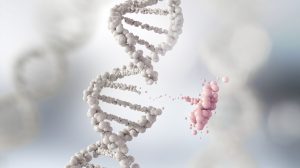Base analogue
(Science: biochemistry) a chemical which resembles a nucleotide base. They can substitute the purine and pyrimidine bases that normally appear in dna, despite minor differences in structure. May be used for inducing mutations, including point mutations.
For example: 5 bromouracil can replace thymine or 2 aminopurine replace adenine.
A foreign chemical that mimics the complimentary pairing of a genetic sequence, and usually proves to be a mutagen. This is because the base analogue harnesses the information on that particular
Dictionary > Base analogue
You will also like...

Lotic Communities & Animals
A running water environment offers numerous microhabitats for many types of animals. Similar to plants, animals in lotic..

Abiotic Factors – Water Conditions
A still body of water may be disturbed by a variety of factors. One of them is wind. In fact, it is considered as the pr..

Control of Growth & Development
Control of Growth & Development tutorials look at how the genetic makeup determines the biological processes on a da..

Birth of a Human Baby
Following nine months inside the mother's womb is the birth of the baby. Know the different stages of the birthing proce..

The Dinosaurs
Dinosaurs represented a major turn in the evolutionary development of organisms on Earth. The first dinosaurs were presu..

Origins of Life on Earth
Earth was created around 4.5 billion years ago and life began not long after. Primitive life likely possessed the elemen..

